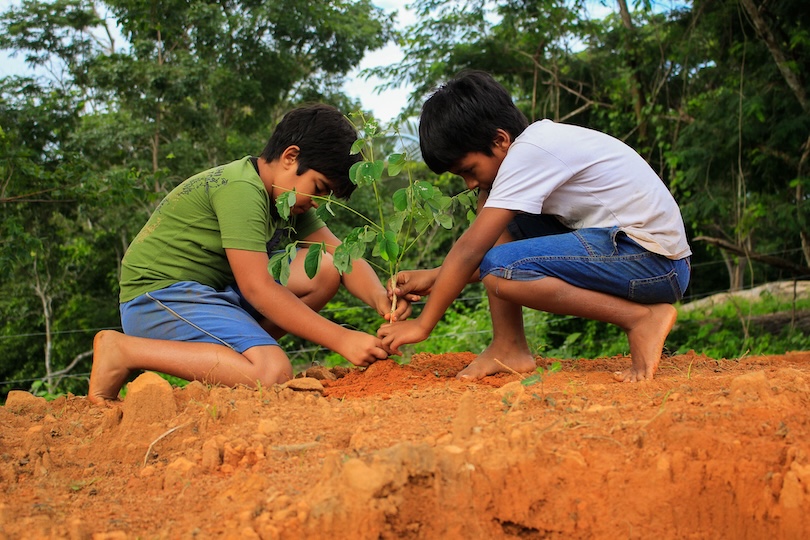Have you noticed that in our days the forests are disappearing faster and faster, without any other plating trees in place? Your child hood places are remaining without trees due to industrialisation or cities expansion? In the face of escalating environmental challenges, the simple act of planting trees emerges as a powerful solution with far-reaching benefits. As concerns about climate change, deforestation, and air pollution intensify, the global call to action for planting trees is gaining momentum. This article explores the myriad ways in which planting trees can significantly improve our environment, offering a sustainable remedy to some of the most pressing issues we face today.

Planting Trees Benefits
Carbon Sequestration and Climate Change Mitigation
One of the most critical roles trees play in improving the environment is their ability to absorb carbon dioxide (CO2) from the atmosphere. Through the process of photosynthesis, trees convert CO2 into oxygen, acting as natural carbon sinks. This helps reduce the concentration of greenhouse gases in the atmosphere, mitigating the effects of climate change. As climate change continues to accelerate, planting trees becomes an essential strategy for maintaining a balance in our ecosystems.
Biodiversity Conservation
Trees are the backbone of ecosystems, providing habitats and sustenance for a diverse range of plant and animal species. By planting trees, we contribute to the preservation of biodiversity, ensuring that various species thrive in their natural environments. Forests are home to countless species, many of which are endangered or at risk of extinction. Increasing tree cover helps create interconnected ecosystems, allowing wildlife to move freely and supporting the delicate balance of nature.
Improved Air Quality
Air pollution is a global health concern, with urban areas experiencing heightened levels of pollutants. Trees act as natural air purifiers by trapping pollutants, such as particulate matter, ozone, and sulfur dioxide, on their leaves and bark. In addition to absorbing CO2, trees release oxygen during photosynthesis, enhancing the quality of the air we breathe. Planting trees in urban environments can significantly reduce air pollution and promote better respiratory health for communities.
Soil Conservation
Trees play a crucial role in preventing soil erosion and maintaining soil fertility. Their roots anchor the soil, preventing it from being washed away by rain or blown away by wind. The fallen leaves and branches also contribute organic matter to the soil, enriching it with nutrients. This not only sustains the health of the soil but also supports agricultural productivity. In regions facing desertification or degradation, planting trees can be a sustainable solution to reclaim and rehabilitate barren land.
Water Management
Trees play a pivotal role in regulating water cycles. Their presence helps to control runoff, reducing the risk of floods and soil erosion. Additionally, trees enhance groundwater recharge by allowing rainwater to slowly percolate into the soil. This is especially crucial in regions facing water scarcity, as healthy forests contribute to the sustainable availability of water resources. By planting trees strategically, we can improve water quality and ensure a more resilient water supply for both ecosystems and human communities.
Temperature Regulation
Urban heat islands, characterized by elevated temperatures in urban areas compared to their rural surroundings, are a growing concern. Planting trees in cities and towns can counteract this effect by providing shade and cooling through a process known as evapotranspiration. The release of water vapor from trees cools the surrounding air, reducing the overall temperature. This not only creates a more comfortable living environment but also helps decrease energy consumption for cooling in urban areas.

As the world grapples with environmental challenges, the act of planting trees emerges as a beacon of hope and a tangible solution. From mitigating climate change and preserving biodiversity to improving air and water quality, trees are a fundamental component of a healthy and sustainable environment. Governments, communities, and individuals must join hands in a collective effort to plant and protect trees, ensuring a greener and more resilient planet for future generations. The simple act of planting a tree today can have a profound and lasting impact on the well-being of our environment and the life it sustains.
